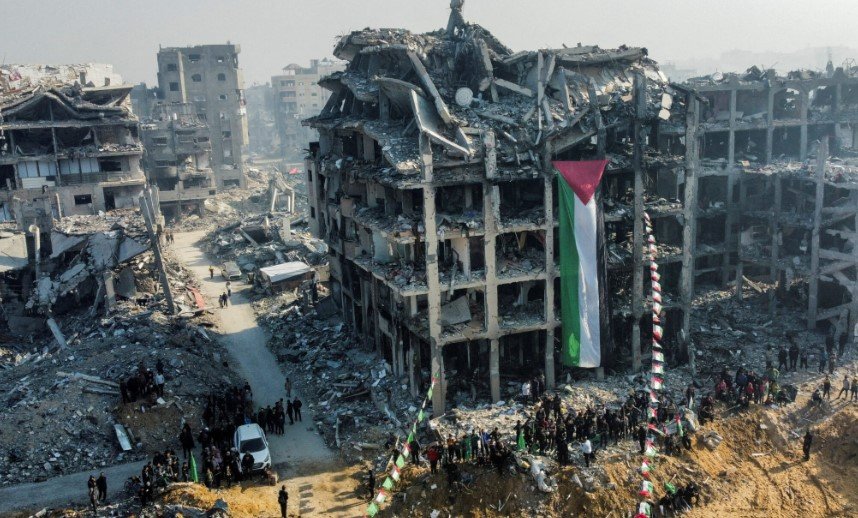Egypt has stepped up as a key player in mediating a ceasefire in Gaza and proposing a comprehensive reconstruction plan for the war-torn region. As of August 25, 2025, Egyptian officials are pushing Hamas and Israel toward a 60-day truce that includes hostage releases and aid delivery, while outlining a multi-billion-dollar rebuild strategy to restore stability.
Ceasefire Talks Gain Momentum in Cairo
Recent negotiations have shifted focus to Cairo, where Egypt hosts key meetings with Hamas leaders. On August 13, Egyptian intelligence chief Maj. Gen. Hassan Rashad met with Hamas politburo head Khalil al-Hayyeh to urge flexibility in talks.
This push comes after months of stalled discussions. Hamas accepted a new proposal without changes, signaling a breakthrough. The plan calls for a temporary halt in fighting, allowing humanitarian aid to flow freely into Gaza.
Egypt works alongside Qatar and the United States to broker the deal. Mediators aim to secure the release of hostages in phases, starting with vulnerable groups like women and children.
International pressure mounts on Israel to approve the terms. Egyptian Foreign Minister Badr Abdelatty has called for global support to end the conflict and start recovery efforts.

Details of the Proposed 60-Day Truce
The truce proposal outlines clear steps to pause hostilities and build trust. It includes a 60-day ceasefire period during which parties negotiate a longer-term agreement.
Key elements of the plan focus on immediate relief and security measures. Hamas has agreed to suspend armed activities, paving the way for aid convoys.
Here are the main phases of the proposed truce:
- Initial Withdrawal: Israeli forces pull back from select areas in northern and eastern Gaza.
- Hostage and Prisoner Exchange: Up to 10 living hostages released in exchange for Palestinian detainees.
- Aid Delivery: Unrestricted entry of humanitarian supplies, including food and medical aid.
This framework aims to prevent further escalation. Analysts say it could lead to broader peace if both sides commit.
Egypt warns that time is limited, with reports of impending military actions in Gaza City adding urgency.
The plan draws from a US-backed initiative, adapted by Egyptian mediators to fit current realities.
Egypt’s Ambitious Reconstruction Vision
Beyond the ceasefire, Egypt proposes a $53 billion plan to rebuild Gaza over five years. This initiative rejects ideas of displacing Palestinians and focuses on sustainable development.
The plan starts with early recovery efforts like debris removal and temporary housing. It then moves to building permanent infrastructure.
Egypt presented this at an Arab League summit earlier in 2025, gaining unanimous support from Arab nations.
The strategy includes creating jobs and improving services to help Gaza recover from extensive damage.
International donors are encouraged to fund the effort, with Egypt leading coordination.
Clashing Visions for Gaza’s Future
Israel’s far-right elements push for reoccupation and control, clashing with the Arab plan. Egypt’s proposal calls for Hamas to disarm and for a technocratic committee to govern Gaza temporarily.
This committee would operate under Palestinian Authority supervision for six months, preparing for stable rule.
The plan also suggests UN-backed forces to maintain security during reconstruction.
| Phase | Timeline | Key Activities | Estimated Cost |
|---|---|---|---|
| Early Recovery | 6 months | Debris removal, temporary housing | $3 billion |
| Phase 1 | 2 years | Build 200,000 housing units | $20 billion |
| Phase 2 | 2.5 years | Additional 200,000 units, airport construction | $30 billion |
These phases aim to restore normal life while ensuring Palestinians stay on their land.
Opponents argue the plan overlooks security threats, but supporters see it as the only viable path forward.
Recent recognitions of a Palestinian state by countries like France and the UK have influenced talks, giving Hamas leverage but also highlighting the need for compromise.
Challenges and International Response
Hamas’s acceptance marks a shift, but Israel’s response remains pending. Past talks failed due to demands for full withdrawal and disarmament.
Egypt opposes mass relocation of Palestinians, calling it unacceptable. This stance strengthens its role as a mediator.
Global leaders watch closely, with Qatari officials traveling to Cairo for further discussions.
The Palestinian Authority forms a committee to potentially govern Gaza, adding another layer to the process.
Experts predict that success depends on all parties showing flexibility amid ongoing humanitarian crises.
Path Forward Amid Uncertainty
Egypt’s efforts could reshape the region if the truce holds. The reconstruction plan offers hope for long-term peace and development.
As talks continue, the world awaits Israel’s decision, which could either advance peace or prolong conflict.
Share your thoughts on Egypt’s role in the comments below, and spread this article to keep the conversation going.
